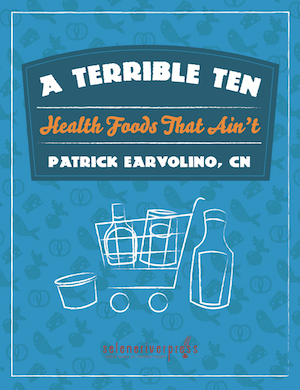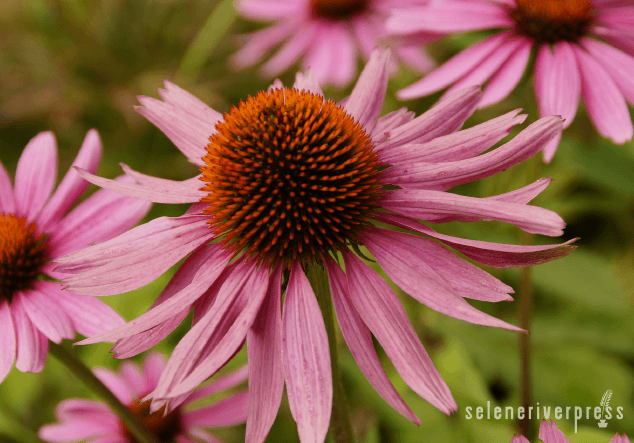For years I’ve been hearing people talk about how wonderful echinacea is, yet I never ventured out to purchase any for our medicine cabinet. I can’t really tell you why. I guess I just didn’t want to add yet one more bottle to our collection of supplements. Plus I’ve always been more of a vitamins and minerals kind of gal, and I hadn’t learned much about using herbs to keep my family healthy.
Then a friend of mine sang the praises of echinacea yet again, so I finally decided to break down and order some. Turns out, my timing was perfect. Just a week later, I felt a spring cold coming on. You know the one…the weather is lovely, but you’re sneezing and coughing and hacking up who knows what. All you can do is stare out the window, hoping it will still be lovely out there when you can actually enjoy it. I’m not sick very often, but, for whatever reason, I usually get a doozy of a cold every spring.
I got the Echinacea Premium from MediHerb, an Australian company whose products are sold exclusively by Standard Process in the U.S. With my shiny new bottle in hand, I looked at it and said, “Make me a believer.” I’d opted for the liquid version because my boys are really resistant to learning how to swallow pills. (Side note: If you have any magic tricks on this, please share!) Anyway, I took the recommended dose as soon as I noticed a scratch in my throat. You see, I’d read that the key to success was to start taking it as soon as you notice symptoms—and that throat thing is my telltale sign of something brewing.
Even as I drank down the echinacea, I braced myself for my cold to progress from a scratchy throat to a persistent cough to an alternating runny and stuffy nose, and so on. It was inevitable—the same thing happened each spring. But all the while, I diligently took my next dose of echinacea. I bet you know how it all turned out, since I decided to write about it. This time, the inevitable never happened. My scratchy throat didn’t lead to a persistent cough, and a day or two later there was no sign of anything. Everyone, the verdict is in. Echinacea made me a believer.
Why echinacea?
- Humans have relied on echinacea for a long time. According to a MediHerb report titled Echinacea: A New Understanding, its medicinal properties were known to Native Americans. They used only the root of the species they believed most valuable, Echinacea angustifolia. (Today its high value is reflected in the price tag, making it quite pricey to obtain.)
- In an effort to make their product more affordable, MediHerb uses a combination of Echinacea angustifolia and Echinacea purpurea. The Germans discovered the latter is also effective and much easier to grow—and therefore, less cost prohibitive.
- The MediHerb brochure for Echinacea Premium explains that using this powerful herbal extract when your immune system is low strengthens your white blood cells. This can mean the difference between warding off a bug or succumbing and suffering through it. You can take a maintenance dose even when you show no signs of illness, and you can bump it up if you notice any telltale signs that a cold is trying to take hold. Routinely taking the maintenance amount may mean you never need to increase it. Your health care provider can help you determine the doses that are best for you and your family.
- Echinacea also supports your lymphatic system function and promotes healthy throat and upper respiratory tissue.
I realized just how important it is to take echinacea as soon as any symptoms start when our middle guy told me he’d been dealing with a sore throat for a couple of days. I gave him some immediately. And while it didn’t stop his sore throat from developing into a cough and a stuffy nose, his cold was still short-lived. He was back at school and baseball practice within a couple of days—much better than it could have been, so I’ll take it.
Now that I’ve reaped the benefits of echinacea firsthand, I’ll be educating myself on the MediHerb line from Standard Process and talking with our nutritionist about the most beneficial products to keep on-hand.
Are medicinal herbs part of your routine for maintaining good health? If so, which ones do you always have within reach?
(Pictured above: echinacea plant)
 Get self-health education, nutrition resources, and a FREE copy of A Terrible Ten: Health Foods That Ain't ebook.
Get self-health education, nutrition resources, and a FREE copy of A Terrible Ten: Health Foods That Ain't ebook.

